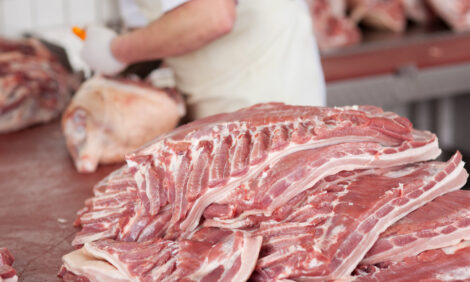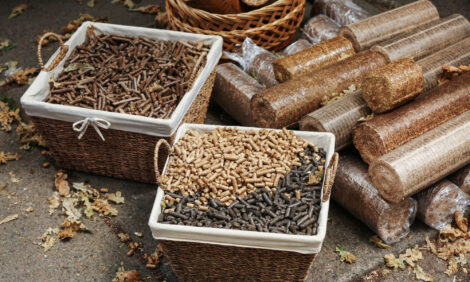



Statement on the Proposed Voluntary Country-of-Origin Labeling Program
US - "America's cattle ranchers, pork producers, seafood producers and produce grower-shippers, as well as U.S. food processors, wholesalers and retailers, are united behind a proposed approach to implement voluntary country-of-origin labeling. The effort will create a program to identify domestic and imported fruits, vegetables, beef, pork and seafood with labels showing where they originated.
|
National Cattlemen's Beef Association, National Pork Producers Council, United Fresh Fruit and Vegetable Association, National Fisheries Institute, Produce Marketing Association, American Meat Institute, National Meat Association, Food Marketing Institute, National Grocers Association, National Food Processors Association.
"We believe that this approach allows the food chain to realistically address the problems associated with the mandatory country-of-origin labeling program by replacing it with a workable voluntary program.
"This cooperative effort is built upon the commitment of all segments of the food production chain to work together to benefit both producers and consumers by providing product origin information without burdening anyone with added costs. Under this voluntary program, the labeling responsibility is placed in the hands of producers, processors, and retailers who choose to participate. Ultimately, however, the choice is in the hands of consumers at the retail market meat and fish cases and in the fruit and produce aisles.
"America's producers of cattle, pork, seafood, fruits and vegetables, packers, shippers, processors, wholesalers and retailers are united behind a voluntary program that:
Is market-driven - Consumer demand and industry promotional needs should shape the program.
Recognizes existing labeling programs - Products that identify the farm, state or region of origin or certified U.S. brands, such as Black Angus Beef, should not require additional country labels. The U.S. Department of Agriculture already recognizes hundreds of voluntary programs for beef, pork, seafood, fruits and vegetables.
Minimizes record-keeping - To the extent possible, country records made for other laws should suffice to verify where products originate. Only those companies that produce or directly import products should have to keep those records.
Allows flexibility - More than 75 percent of produce items already have some medium for providing country information, such as packaging, stickers and twist-ties. Allow the industry to use these mediums.
Is cost-effective - Labeling must be performed at the point in the supply chain where it is most efficient to do so. This may vary by product depending on the company that produces or imports the food and has firsthand knowledge of its origin.
"Why will voluntary country-of-origin labeling work now when recent programs have not? The entire industry is committed to making it work. We support the voluntary labeling approach because it informs consumers about agriculture products' country-of-origin and benefits U.S. producers by promoting American-grown foods. We are enthusiastic about this effort and hope others in the agriculture, processing, retail, and food service communities will give this effort full consideration."
Source: National Pork Producers Council (NPPC) - 25th May 2004












